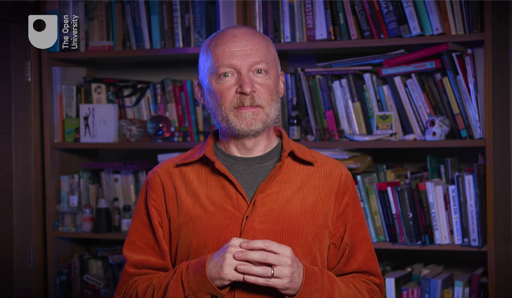Week 4: Space
Introduction
Last week explored how the quantum nature of the world puts a limit on what we can know, especially on very small scales. This week you will turn your attention to the largest scales of all and ask some big questions about the universe as a whole. Does the universe go on forever? If not, how big is it? Can we ever know these things?
Here’s Marcus to introduce this week’s topic.

Transcript: Video 1 Introduction
By the end of this week, you should be able to:
- appreciate that looking out into space equates to looking back in time
- describe the effective boundary of the observable universe
- appreciate that observations of galaxies show how the whole universe is expanding at an accelerating rate
- understand the implications of Einstein’s theory of general relativity on the expansion of the universe.
